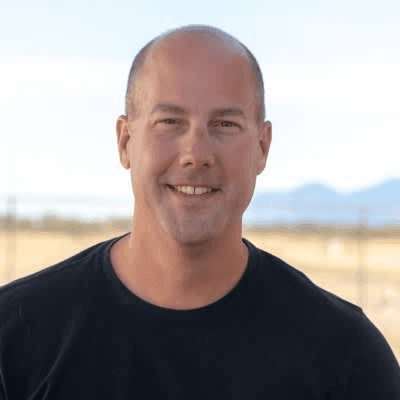How Notepad.pw Sold for $76,000 with Minimal Upkeep and 1.1M Monthly Page Views

Business Description
Table of Contents
Navigate through the case study sections
Executive Summary
Case Study Content
Notepad.pw: The Minimal Note-Taking Site that Quietly Dominated Organic Search
In a world where note-taking apps keep evolving, adding features and complexity, Notepad.pw stood out by keeping things dead simple. No logins, no installations, no bloat, just a clean interface, instant note saving, and robust privacy. Its founder, Brad Touesnard, built it as a side project but quickly saw it gain organic popularity, eventually racking up 1.1 million page views monthly. This wasn’t an over-engineered productivity suite. It was a plain notepad in your browser, that’s all, and for a certain kind of user, that’s everything.
Origin: Making Simplicity Popular
Brad launched Notepad.pw in mid-2018 as a solution for anyone who wanted a private, disposable place to jot things down online, no accounts, no tracking. He took inspiration from the idea that sometimes the next great SaaS doesn’t add features, it removes them. The entire business was bootstrapped, operated out of Halifax, Canada, and run solely by Brad.
With the project's foundation set on usability, speed, and privacy, traction started strong and kept growing. The site appealed especially to professionals, students, and programmers who wanted a clean workspace for notes without distraction. By keeping everything so lightweight, Notepad.pw was fast and stable across all devices.
Organic Growth and Mind-Boggling Loyalty
Notepad.pw shot up the ranks, in terms of both traffic and user loyalty. Unlike apps that depend on endless ads, partnerships, or viral campaigns, this site amassed its audience almost entirely organically. The facts speak for themselves: 92% of users arrived via direct channels. Most came back repeatedly, often relying on browser bookmarks or keeping the site as a default new tab. A tiny percentage came through search engines, but by then, word-of-mouth and habit had set in.
This intense loyalty is rare. With no push notifications, emails or paid promotion, Notepad.pw created a habit-forming user experience by simply being useful and always available. The value here wasn’t the depth of features, but the trust and dependability it provided.
Monetization: Ads and Subscriptions
Brad monetized Notepad.pw mostly via unobtrusive display ads. Given the scale, over a million page views monthly, this alone added up. Subscriptions offered a secondary revenue stream, benefiting from a small set of users willing to pay to remove ads or unlock some additional settings. This mixed model helped steady the revenue, bringing in about $2,232 every month, reliably, with almost no day-to-day maintenance or support burden.
Site Maintenance, Minimal Time Investment
Notepad.pw achieved its success while running on autopilot. Brad barely updated the service and did not need to hire a team. He maintained occasional server and security updates, responded to minimal support requests, and ensured uptime, but day-to-day, the business ran itself. This lack of ongoing effort proved especially attractive to buyers on Flippa, as the balance between reliable income and low overhead is not easy to replicate.
The Flippa Sale: Intense Interest, Fast Auction
In late 2023, Brad decided to list Notepad.pw for sale on Flippa. The move was strategic: he already had a strong track record (over 15 successful transactions) on the platform, with more than $700,000 in lifetime sales on various online ventures. The Notepad.pw auction quickly caught fire. In just 30 days, there were 37 bids from 27 unique buyers and 44 individual direct conversations. The listing racked up more than 11,500 views and stoked significant buzz in the site-flipping community.
The buyer, a first-timer named Farukh, registered for four years on Flippa but never successful until this moment, secured the business with a winning $76,000 bid, representing a 3x monthly profit multiple. For Farukh, Notepad.pw was a ready-to-scale opportunity: with so much organic direct traffic and only basic ad/subscription monetization, loads of upside remained to add features, upsell, or find new channels.
Lessons and Opportunities
The story of Notepad.pw runs counter to a lot of startup advice. Instead of chasing feature creep or burning cash on marketing, the value proposition was laser-focused. Simplicity, speed, privacy and reliability pulled users in organically, a unique approach in an era where most SaaS companies feel pressure to scale, automate, upsell, and push engagement ever higher.
For other founders or digital product owners, the sale highlights the power of building something genuinely useful, cultivating direct engagement, and running lean. Importantly, Brad’s long-term credibility as a Flippa seller made the transaction smooth, and his relationship with buyers over the years ensured trust.
Next Steps for the Buyer
As Farukh took ownership, he inherited a platform primed for scaling and experimenting with new monetization routes. Potential exists to increase paid subscriptions, add integrations, or customize features for enterprise or B2B clients, all atop a loyal direct-user base that’s rare in today’s fickle SaaS markets.
Notepad.pw’s story isn’t about huge teams or massive R&D. It’s about doing the basics, making a site people actually use every day, keeping the codebase light, and monetizing traffic smartly. And sometimes that’s all it takes for a profitable exit.
Key Takeaways
- 1Notepad.pw grew to 1.1 million monthly page views with zero paid marketing and almost no updates.
- 2A focus on direct, organic traffic led to exceptional user loyalty, 92% of visits came direct.
- 3Monetization was primarily through display ads and a small but steady flow of paid subscriptions.
- 4Founder Brad maintained the site solo, spending minimal time on operations or customer support.
- 5The sale on Flippa drew 37 bids from 27 different buyers and closed within 30 days.
- 6A first-time Flippa buyer bought Notepad.pw for $76,000, recognizing big upside potential.
Key Facts
Tools & Technologies Used
Premium Content Locked
Subscribe to access the tools and technologies used in this case study.
Unlock NowHow to Replicate This Success
Premium Content Locked
Subscribe to access the step-by-step replication guide for this case study.
Unlock NowInterested in Being Featured?
Share your success story with our community of entrepreneurs.
Explore More Case Studies
Discover other inspiring business success stories

From IT Burnout to Blog Exit: How Steve Adcock Sold Think Save Retire for Six Figures
Steve Adcock, after 14 years in IT, started Think Save Retire to document his path to financial independence, never expe...
Think Save Retire

How Sarah Chrisp Earns $100+ Daily Recommending Free Apps
Sarah Chrisp leveraged her YouTube following and a simple two-tier affiliate approach, promoting free versions of Placei...
Wholesale Ted

How Your Moon Time Built a $1.3M Reusable Feminine Care Brand and Sold Within 30 Days
Your Moon Time began as a market experiment in eco-friendly feminine care, growing swiftly to capture $1.3M in lifetime ...
Your Moon Time